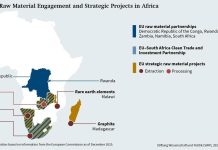Africa-Press – Lesotho. PETROLEUM company, Engen Lesotho, has come under fire for trying to replace its former managing director, who was a Mosotho, with a foreign national. Engen is replacing Theodore Molapo with Tebogo Mosehla, a South African national whose work permit the company has been trying to push through for the past two months.
Molapo left the company in August under what the company described as early retirement. Sources however told thepost that Molapo was pushed out after a forensic investigation unearthed some irregularities.
His replacement, Mosehla, is however battling to get a work permit allegedly because the government believes there are Basotho who are qualified enough to do the job.
thepost has been told that Engen has since approached the Ministry of Labour and Employment to plead for Mosehla to be granted the work permit. Senior officials from the company’s regional office in South Africa are also said to have met the Minister of Labour and Employment, Moshe Leoma, about the issue.
They have also scheduled a second meeting with the minister to discuss the issue. The government is also said to be reluctant to grant the permit because that would be contradicting its policy to localise the petroleum industry’s ownership and human resources.
Since 2016 the government has been aggressively pushing for the localisation of the petroleum industry. This followed complaints that the industry is structured in a way that relegated Basotho to mere filling station owners and retailers of petroleum products where margins are pitifully slow.
For instance, a garage makes 0.96 cents for every litre of either petrol or diesel. It is from this small margin that they have to cover all their overheads.
Most garages have to be anchored by convenient shops to remain in business. Until 2016 the business of transporting petroleum products from South Africa was dominated by foreign companies.
So was the bulk storage and eventual distribution to local filling stations. After initial reluctance, Engen and other international companies embraced the policy and awarded distribution contracts to locally owned companies.
The government has however been keen to extend that localisation throughout the entire distribution chain. Part of that policy was also for the international companies to hire Basotho managers, a move the government considered as low-hanging fruit.
Sources however say some government officials consider Engen’s attempt to hire an expatriate as contrary to that policy. The government, sources say, is also worried that some of the companies’ boards of directors are still dominated by foreigners.
There is also a view within some corridors in the government that the international companies are not doing enough to build value chain linkages with local companies and empower them to be significant players in the industry.
In the past, similar complaints were raised against mining companies which were accused of giving plum jobs to expatriates on the justification that there was no local expertise.
The government however insisted on the hiring of locals and pushed the companies to have clear skills-transfer policies. Almost all mining companies subsequently implemented the skills-transfer policies and established graduate trainee programmes.
Yet, there are still complaints that the companies are not going far enough to localise some senior jobs. Engen’s battle to get a work permit for Mosehla has since attracted the notice of the labour minister Leoma, who has become the ‘poster child’ of the government’s ‘Mosotho first’ policy.
Since earlier this year, Leoma and his officials have been running an operation targeting illegal workers. He has also been closely scrutinising work permit applications to ensure that companies don’t give expatriates jobs that could be done by local professionals.
Leoma told a local radio station he is already looking at the Engen issue. “What I am trying to say is that the Engen issue is presently in my office although there is no tangible evidence (of wrongdoing) yet,” Leoma said.
He said the ministry is investigating if Engen has an expatriate working in Lesotho without a permit. The law, the minister said, is clear that an expatriate had to be granted a work permit before he could start working in Lesotho.
“It is illegal for anyone to apply for a work permit when they are already working,” he said.
Leoma said the government’s policy is that no position should be given to an expatriate if there is a local with similar qualifications and experience.
“The law is against any outsider that may come into the country to hold a position that can be held by a Mosotho.
But in the case where no one in the country possesses the same qualification as an outsider, then both (the outsider and Mosotho) can engage in the same role.
”
“According to the labour code, the expatriate will be the leader for two years because of their qualifications. After the two years a local will take over that position. ”
“This is to say if there is anyone who is already doing such a job (as managing director of Engen) yet they are not registered with the Ministry of Labour and Employment, this is illegal.
”
Leoma said he would not announce when the investigations into allegations against Engen will start. He said if any crime has been committed the law will take its course.
For More News And Analysis About Lesotho Follow Africa-Press






